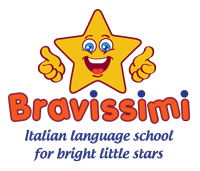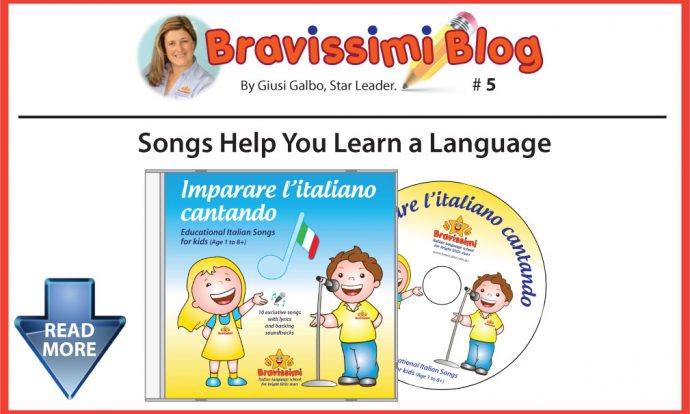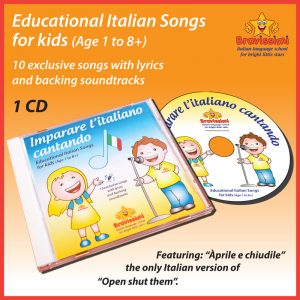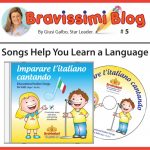How to unlock learning a language by embracing Music & Songs:
For a child, it can be daunting learning a new language thankfully in today’s day and age there are many tools and resources at our disposal. For example, did you know there is strong scientific evidence linking music and songs with the process of learning a language? Recent research demonstrates that songs can help children better acquire grammar and vocabulary as well as help with spelling and pronunciation.
A child’s emotional relationship with music is deep and powerful and, in many instances, music can be used to comfort and relax them. It is no surprise then that music and songs have been proven to also enhance a child’s ability to focus and strengthen their memory. With an enhanced mental capacity, a child’s ability to learn a language such as Italian through repetition and memorisation is increased. At the end of the day, we want children to get the Italian language stuck in their head. Songs are catchy, especially once you learn to sing along and familiarise yourself with the storytelling and lyrics. So thanks to the sound patterns in songs they can become a very effective tool for memorising vocabulary, phrases and expressions.
One hurdle parent’s encounter when teaching their child a second language is finding the time to practice at home. Well it can actually be as effortless as putting on a CD. Imagine driving your children to school in the morning listening to Italian nursery rhymes or picking them up and playing the latest Italian pop songs. Or taking the time while cooking dinner to sing along to some tunes with your children so it becomes a family activity. You can be creative, perhaps even at night time when you tuck them into bed you can recite the lyrics to a favourite Italian lullaby.
Being actively involved in your child’s learning and introducing music into daily activities releases the pressure your child might be experiencing to “study” and allows them to emotionally invest in the language by choosing music they enjoy. By repeating songs and finding family favourites your child will become familiar with the sounds of the Italian language and it will begin to resonate and sink in.
Italians are known worldwide for their infectious passion, their boisterous nature and how they embrace song and music in their everyday lives. By implementing songs and the emotional nature of lyrics into your child’s learning process they can also become immersed into the culture. The music provides insight into how Italian’s speak, their behaviours, feelings, emotions and the overall lifestyle. This richness gives your child an understanding of not only grammar and how to pronounce words but the life that exists in the language. By doing so, they develop a familiarity with popular Italian culture and a connection with other native Italian-speakers.
So if you are short on time and are looking for an effective and fun way to help your child practice their new language why not consider putting on some Italian songs and singing along.





 Bravissimi head office:
1 / 93 McNamara Avenue
Airport West VIC 3042
CALL: (03) 9338 0831
EMAIL: ciao@bravissimi.com.au
Bravissimi head office:
1 / 93 McNamara Avenue
Airport West VIC 3042
CALL: (03) 9338 0831
EMAIL: ciao@bravissimi.com.au